- 29 July 2025
- JST 15:10 - 16:40 (GMT+09:00)
- 501 On-site Only
- English Only
Fostering SDGs Youth Leaders – Learning from Japanese Frontrunner Cities
Before viewing
This footage is a direct recording of the meeting proceedings, and therefore it contains parts in both Japanese and English.
Please use the YouTube subtitles (CC) function as needed.
- Click the settings icon at the bottom right of the video screen.
- Select “subtitles” → “English (auto-generated)”.
- Under “English (auto-generated)”, select “auto-translate” and choose your preferred language.
Note: For example, if you select Japanese, subtitles will not be displayed for Japanese speech, and only the English portions will be shown with Japanese auto-translation.
We appreciate your understanding and cooperation.
Summary
This session discussed the outcomes of the educational SDGs programme "SDGs Global Human Resource Development Program that Connects Learning and Society through Environmental Issues" conducted by IGES in FY2024. This programme was implemented as part of the Ministry of Education, Culture, Sports, Science and Technology’s (MEXT) FY2024 UNESCO Activity Grant: ESD Promotion Project for Developing Leaders for the Achievement of the SDGs. Seventeen international and Japanese university and graduate students, who aspire to become leaders in society in achieving the SDGs, were selected from a nationwide public application process to participate in this programme. In September 2024, the students spent two weeks visiting three SDG model regions in Japan (Kamikatsu Town of Tokushima Prefecture; Kitakyushu City of Fukuoka Prefecture; and Minamata City of Kumamoto Prefecture) that have created a virtuous cycle for society and the economy by overcoming environmental challenges. The programme visited sites where diverse stakeholders are thriving in their respective fields, and collaborating among each other. The students listened to real-life experiences, and explored the key points for regional revitalisation. After this field training, the students took their own first step by independently planning a report session at their respective universities or communities to share what they had learned from this programme.
At the beginning of this session, IGES explained the background and purpose of the programme—the programme is not simply a one-way provision of learning materials to students, but it aims for interactive, two-way communication so that regional stakeholders could also receive some benefit such as feedback, ideas and dissemination from the students. Further, in the long-term, the programme hopes to develop UNESCO-advocated sustainability competencies (particularly systems thinking, self-awareness, collaboration, and comprehensive problem-solving). In the first half of the session, six students served as panelists and shared what they learned from the programme. Next, local stakeholders (Hokutaku Co., Ltd. (Kitakyushu City), Minamata Environmental Academia (Minamata City), and INOW (Kamikatsu Town)) shared what they gained from hosting the programme. In the second half, students articulated what kind of role they wish to take in the future and the types of sustainability talent they aspire to foster. Then, local stakeholders exchanged their opinions on what kind of efforts they are taking to develop youth leaders who will carry out the SDGs, and what kind of young talent is needed in their region.
Summary written by: OTA Junko (IGES)
Panel Discussion
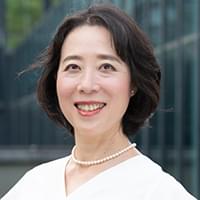
OTA Junko
Research Manager, Kitakyushu Urban Centre, IGES
Student, Graduate School of Business, Doshisha University
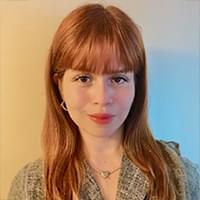
Alejandra Maritza RODAS AROCHE
Student, Graduate School of Business, Doshisha University
Alejandra Maritza Rodas Aroche is from Guatemala and currently a Global MBA candidate at Doshisha University in Japan, specializing in innovation, sustainability, and technology in business. In 2024, she completed specialized SDGs training through IGES and participated in the World Recycling Convention in Italy. Her current thesis explores how AI and circular economy principles can be applied to sustainable product design, with a focus on consumer perception and environmental impact.
Student, Graduate School of Global Environmental Studies, Kyoto University
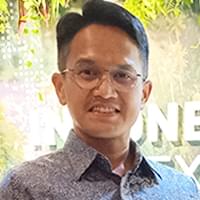
Hangga PRIHATMAJA
Student, Graduate School of Global Environmental Studies, Kyoto University
After 13 years of professional work as an auditor for various sustainability certification programs, while also serving as a consultant in the field of climate change mitigation, I am currently pursuing a PhD in Global Environmental Policy at the Graduate School of Global Environmental Studies, Kyoto University. I am also affiliated with the Division of Graduate Studies at Kyoto University, supported by the Japan Science and Technology Agency, and the Mitsubishi UFT Trust Foundation as one of its scholars. Whilst founding MIDORI Forestry, I aim to become a leading research consultant in the fields of climate change, forestry, and sustainability.
Research Assistant, Department of Global Studies, Sophia University
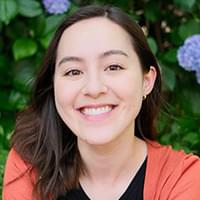
Mana SHORT
Research Assistant, Department of Global Studies, Sophia University
Mana Short is a Japanese-American researcher and recent graduate of Sophia University, where she earned a B.A. in International Relations through the Sophia Program for Sustainable Futures. Her work centers on regenerative education and grassroots environmental movements. She currently serves as a research assistant on two projects: one investigating urban watershed governance and green infrastructure in Tokyo, and another examining agroecology movements throughout Japan. Outside of her academic work, Mana actively explores community-based sustainability initiatives, learning how local groups organize and collaborate to address pressing social-ecological challenges.
Student, Department of Transdisciplinary Science and Engineering, Institute of Science Tokyo

Mariam ALNAQBI
Student, Department of Transdisciplinary Science and Engineering, Institute of Science Tokyo
Mariam Alnaqbi is a graduate student in Transdisciplinary Science and Engineering at the Institute of Science Tokyo. She serves as the President of the Emirati Youth Council in Japan, working to strengthen cultural and strategic relations between the United Arab Emirates (UAE) and Japan. She is also the Founder and President of Women in Science Tokyo (WiST), an organization dedicated to promoting gender equity and inclusion in STEM. Mariam welcomes opportunities to collaborate with like-minded individuals and organizations.
Student, Department of Social System Design, Eikei University of Hiroshima
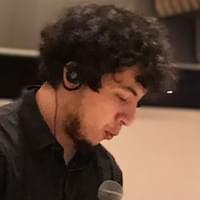
Martín Rogelio BUSTAMANTE ANTONIO
Student, Department of Social System Design, Eikei University of Hiroshima
Martin is a Mexican student enrolled in the Social System Design program at Eikei University of Hiroshima. Passionate about sustainability and peacebuilding, he actively collaborates with international organizations such as UNITAR and the YMCA. He has participated in regional initiatives the Asia Pacific Next Generation (APNG) Camp, contributing to youth-led innovation across the Asia-Pacific. Although not originally from Asia, Martin is deeply committed to strengthening cooperation and dialogue among young leaders in the region, fostering cross-cultural collaboration for a more sustainable future.
Driven by a strong curiosity to understand the systems that shape our world, Martin explores the intersections of sustainability, economic development, and market dynamics. He currently leads multiple initiatives, including a food self-sufficiency start-up, aimed at building resilient and inclusive communities.
Student, Graduate School of Energy Science, Kyoto University
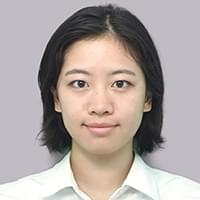
KITAGAWA Sakurako
Student, Graduate School of Energy Science, Kyoto University
Sakurako Kitagawa became interested in decentralized energy systems after experiencing the Great East Japan Earthquake and the resulting power outages when she was in the third grade of elementary school.
The inconvenience of life without electricity, along with a sense of discomfort toward the structure of the current energy system, sparked her interest.
She studied energy from an engineering perspective at the Faculty of Engineering, Tohoku University. Motivated by a desire to consider energy issues from a more multifaceted viewpoint, she is now continuing her studies at Kyoto University’s Graduate School of Energy Science. Her current research explores whether decentralized energy systems—which require long-term investment recovery—can be economically and socially sustainable in regional areas of Japan, where population decline and decreasing demand are anticipated. She is also interested in how the traditional ways of life, cultural practices, artisanal techniques, and temples and shrines—passed down over generations in these regions—can be preserved and revitalized for the future. Her work focuses on the intersection of regional sustainability and decentralized renewable energy systems.
Director General, Minamata Environmental Academia, Minamata City Office
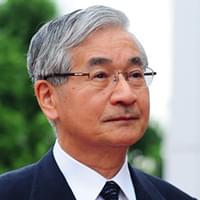
KOGA Minoru
Director General, Minamata Environmental Academia, Minamata City Office
Dr. Minoru Koga is the Director of the Minamata Environmental Academia in Minamata City, Kumamoto Prefecture. He holds a Ph.D. in Science and has specialized in environmental analytical chemistry, with a long career in education and research at institutions such as the University of Occupational and Environmental Health and Kumamoto Prefectural University, where he also served as President.
Since the founding of the Academia, he has been deeply involved in its development as a hub of knowledge that carries forward the experiences and lessons of Minamata disease. Through dialogue and exchange with students and experts from Japan and abroad who visit Minamata, he is dedicated to promoting sustainable local communities.
General Affairs Department Manager, Hokutaku Co., Ltd.
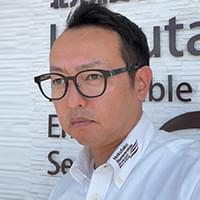
ITO Yoshitaka
General Affairs Department Manager, Hokutaku Co., Ltd.
He joined Hokutaku Co., Ltd. in 2019 and currently works at the company's Kitakyushu branch. As General Affairs Department Manager, he is leading the management of wind power generation O&M (operation and maintenance management) and training business.
He graduated from the Department of Policy Studies, Faculty of Law, the University of Kitakyushu. Before joining Hokutaku, he was a civil servant for the local government of the City of Kitakyushu.
Co-founder, INOW
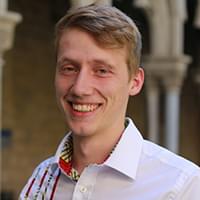
Sil VAN DE VELDE
Co-founder, INOW
Sil is passionate about education, conservation, and sustainable tourism development. He has worked with communities such as the Saharawi and Dusun to explore how international mobility can raise awareness of environmental injustice and inspire more inclusive, posthumanist perspectives.
He is the co-founder of INOW, a social enterprise based in Kamikatsu, known as the first zero-waste village in Japan. INOW creates experiential learning programs that bring together local residents, students, and professionals from around the world to explore sustainable living, circular economies, and rural revitalization.
Through guided programs, hands-on activities, and cross-cultural exchange, INOW serves as a bridge between global ideas and local practices, inspiring people to reimagine the way we live, consume, and connect with one another. The initiative reflects a deep commitment to building a community of people who care about creating a circular, waste-free society rooted in mutual respect and environmental responsibility.
-min.JPG)
-min.JPG)
-min.JPG)
-min.JPG)
-min.JPG)
-min.JPG)
-min.JPG)
-min.JPG)
-min.JPG)
-min.JPG)
-min.JPG)
-min.JPG)
